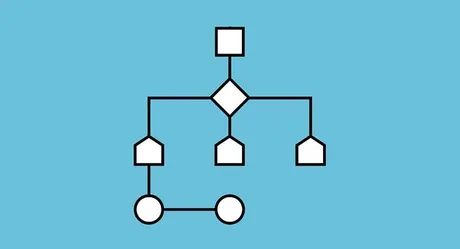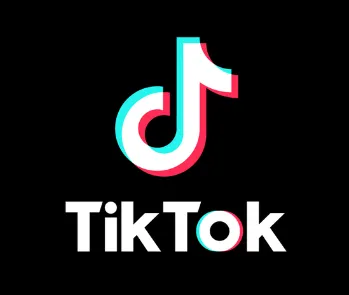
Weird that it's not a priority, eh?
But there's also a good reason for it as well. Creating a good algorithm is very difficult and all the WEB2 social media sites develop them behind close doors in secret. It's weird to think about but the ability to organize and disseminate content is very much intellectual property. After all, all these corporate entities are very much in competition with each other. Can't be giving up trade secrets willy nilly.
The monetization of data.
The goal of a good algorithm is two fold. The first and foremost reason to evolve this kind of tech is to make sure the platform can scale up without becoming bloated and unwieldly. If users are constantly served random content that doesn't capture their interest then the platform will lose business within the attention economy to another network that can captivate them.
The ultimate side-effect of a good algorithm is that it acts as a very important information feedback loop for the company that issues it. Every WEB2 service learns as much as they can about their users because that information ends up equating to actual dollars down the road. By monitoring what users like and respond to within this datamined-loop Big Tech can further refine what they know about the people that utilize their systems.
Volume vs overhead cost.
So why do WEB3 platforms like Hive lack this kind of fundamental development? Well, first of all it can be very difficult and expensive to create something that's useful and actually works. In fact, it can be expensive to create an algorithm that doesn't really work at all.
This is compounded by the fact that the algorithm organizes data within the database into useful modules of grouped information. In many cases an algorithm won't even work unless the userbase is big enough to accommodate it. No point in organizing data if there isn't enough data their to organize in the first place. This is something that projects like Hive and Leo suffer from quite a bit. We simply haven't hit that necessary threshold to begin a nice snowball effect. It takes a lot of data to make a little bit of profit. That's just the nature of the attention economy. Volume matters.

Who benefits?
Another big problem with creating a decentralized algorithm is that it would need to be open source. This makes it difficult, if not impossible, to monetize because none of the frontend participants can get an edge, so who's going to put the work in if the developers of the thing have nothing to gain from doing the work? This is a classic open source problem in terms of sustainability and scaling up. This is actually one of the main reasons why crypto is so impressive because it maintains an open source nature while still threading the needle of monetization; something that few codebases have succeeded in doing.
In theory we could fund something like this with DAO money but surprisingly enough I've never seen anyone even attempt such a thing. Again, it's quite possible that there simply isn't enough data on WEB3 systems yet for this to be worth it, yet. In fact we can think an algorithm as a kind of centralized curation, and we already have a basic system set up based on the reward pool. Perhaps that will have to until we hit that scaling wall.
Gaming the system.
Another reason why having an open source algorithm is a potentially self-defeating strategy is that it can be exploited by content creators looking to hit all the required metrics. There are many instances of this happening across all platforms. For a while there were 2-3 minute engagement farming videos about creating ridiculous food dishes.
Ultimate algo farming
Make a 2 minute video with an attractive girl doing something absolutely ridiculous while at the same time acting like it's a totally normal life hack. These videos tick all the boxes. They are short, but not too short. People who watch the video tend to watch them to the end, and they create tons of engagement because people are like, "What the fuck did I just watch." An ice cream scooper on Mexican food? What? Most people had no idea why this trend was happening, but later we found out that it was all about gaming the algorithm and getting as many views as possible.

TikTok has the best algo?
There seems to be some consensus around the idea that out of all the WEB2 algorithms, TikTok has the best one hands down by exponential margins. Many will attest that TikTok knew things about them before they even realized it about themselves. Pretty crazy stuff. How did they do it?
Well, first of all, TikTok is a Chinese entity and we all know how good China is at surveillance and prediction (although this might be an overly reductive take). Also there have been multiple lawsuits in which TikTok was sued for scraping every last bit of data from devices that they possibly could: including pictures and audio directly from the microphone. While they may not employ these tactics any longer they sure as hell didn't delete the data they had already collected.
TikTok was also in the right place at the right time during the COVID lockdowns. Many users were depressed and locked down within their own home and engaged in "doom-scrolling". Many TikTok users would just be on it all day trying to get those 1-2 minute dopamine fixes. I can only imagine the subtle damage that was done to us collectively during that time. I mean I handled it fine but others not so much. Everybody's different, and I guess that's the entire point of an algo in the first place.
Conclusion
Going back to the topic of volume, Tiktok still has a billion users worldwide. Imagine how much data that is. Compare that to WEB3 and it's clear we are still just a tiny drop in the bucket, and maybe not even that. Tack that onto all the other problems of WEB3, like the inability to monetize open source product (unless it's tokenized which can then turn into an unsustainable scam).
Regardless of all the hurdles in the way, this is still something we very much should be considering going forward. The point of social media is, in essence, content curation; being served the information we want to see. Sometimes this is direct and obvious functionality like text messaging between two friends online, but it gets much trickier when trying to organize massive clumps of public data, choosing who gets seen and who doesn't. We've all witnessed the resulting corruption of centralized systems.
Unfortunately decentralized system have their own problems to content with as well. It's unclear how we are going to resolve them going forward, but I think we can all agree that something has to give. WEB2 is cannibalizing itself and that will leave us to pick up the pieces.
Return from WEB3 needs an open source algo; bad to edicted's Web3 Blog
